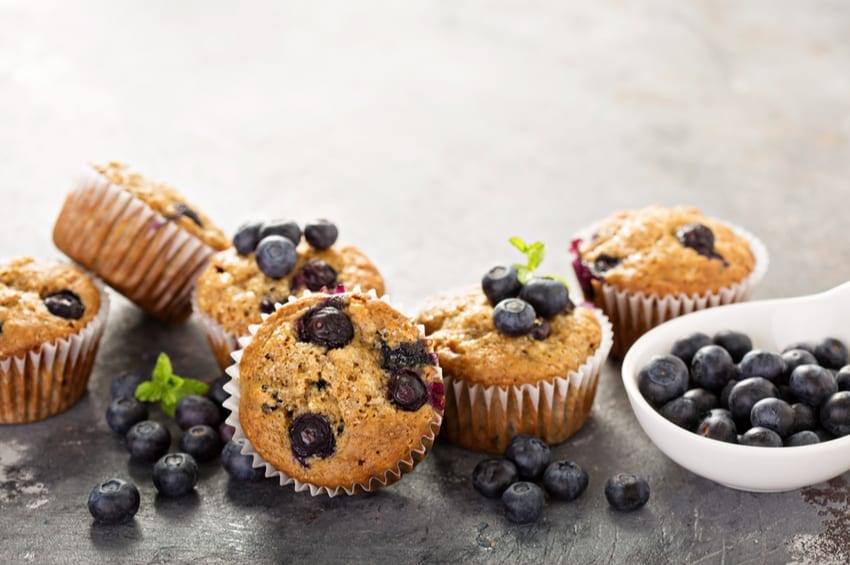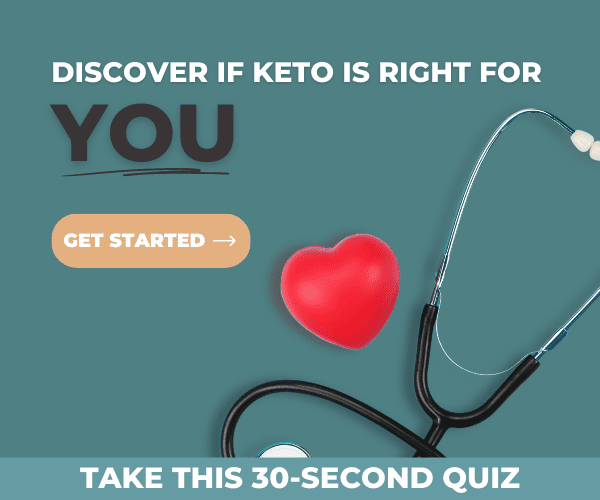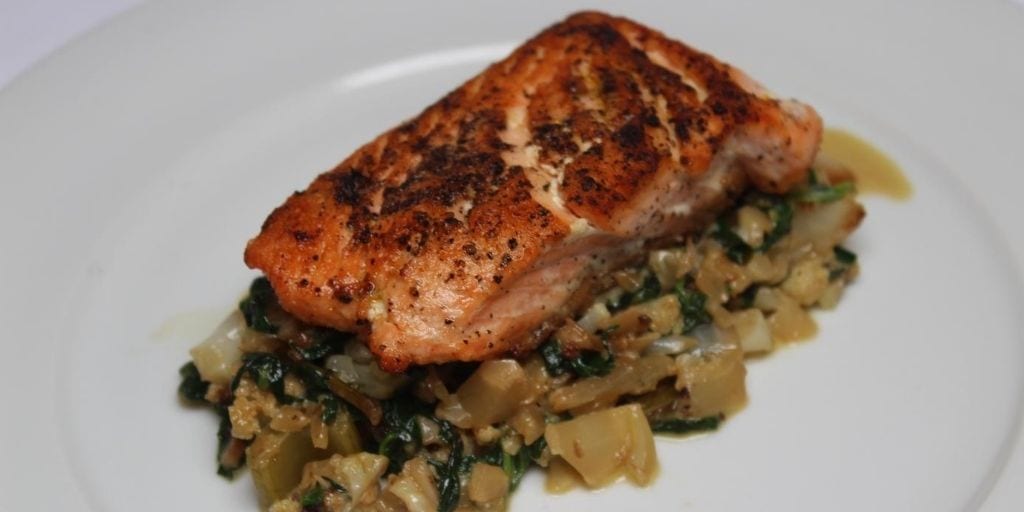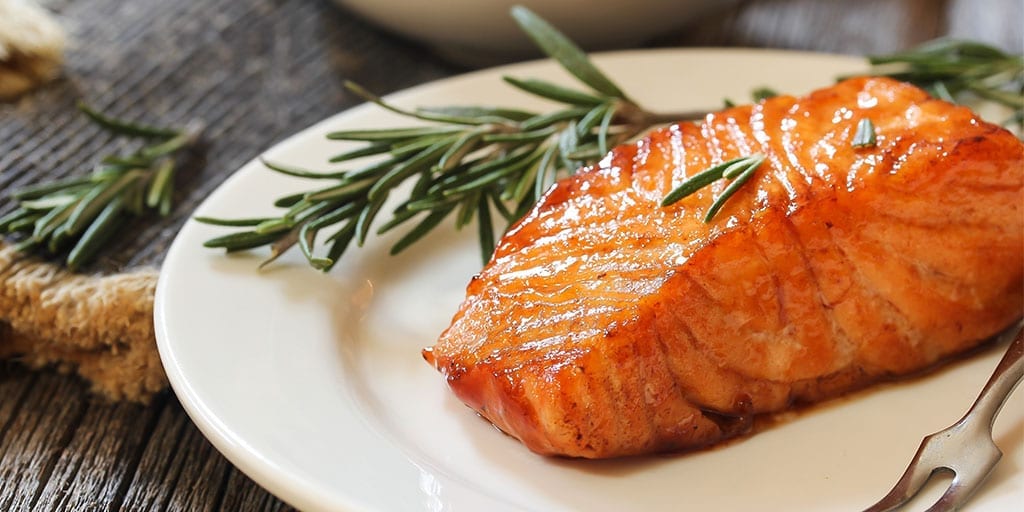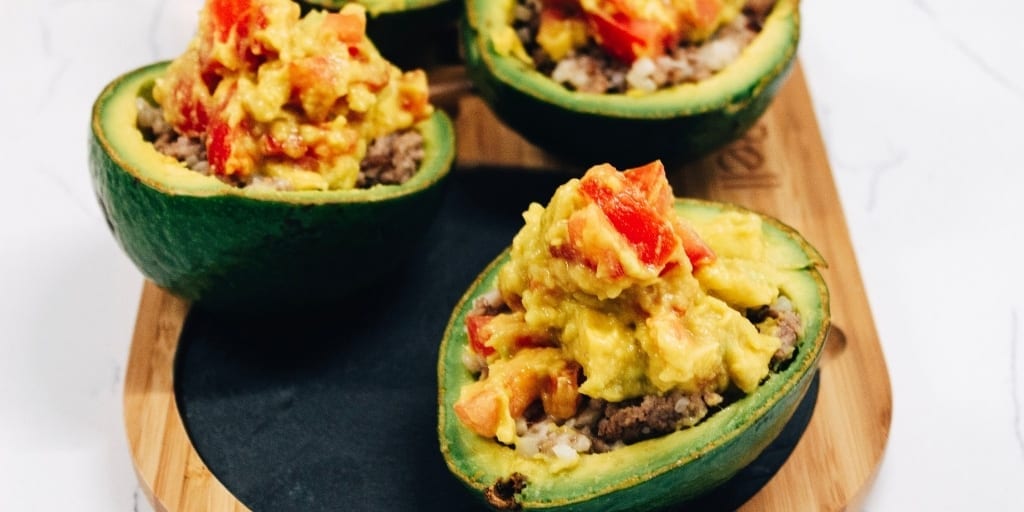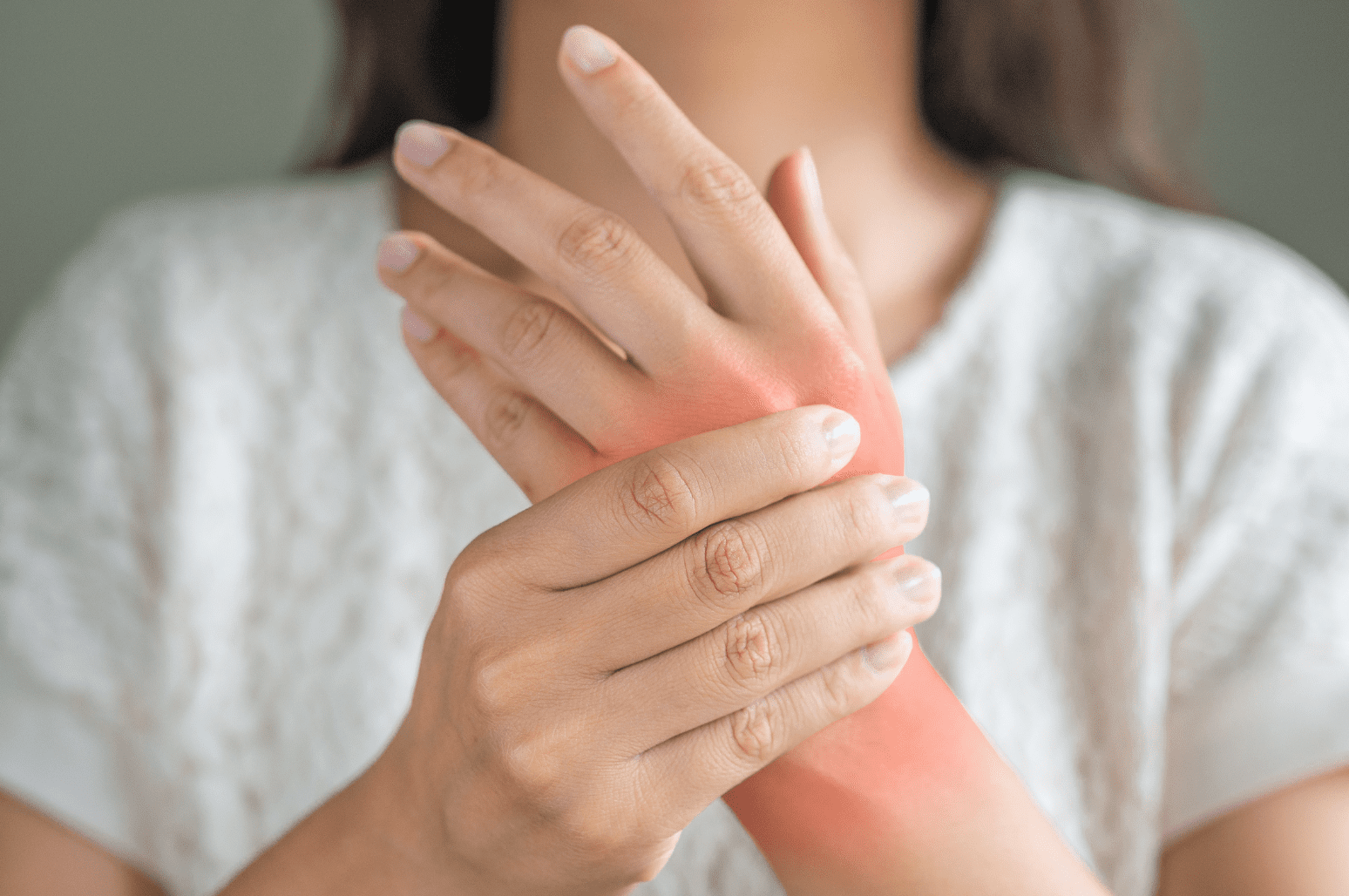6 Anti-Inflammatory Foods You Should Be Eating on Keto

Inflammation is a key player in numerous chronic diseases, including autoimmune conditions. Studies show some foods have anti-inflammatory properties. It’s always best to choose a variety of antioxidant-rich foods that can help you reduce inflammation and nourish your cells. Let’s discuss some of the most potent anti-inflammatory keto-friendly foods.
1. Berries!
Berries are tasty, juicy little fruits packed with fiber, minerals, and vitamins. Berries also contain powerful antioxidants called anthocyanins that have anti-inflammatory effects and might reduce your risk of disease [1] [2] [3]. In one impressive example, those who consumed blueberries daily produced significantly more natural killer cells than those who didn’t. Your body produces natural killer cells to help keep your immune system functioning properly [4].
Try one of these berrylicious keto recipes:
2. Fatty Fish
Fatty fish provide good quality protein and the long-chain omega-3 fatty acids DHA and EPA. All types of fish contain some omega-3 fatty acids, but to remember the best sources, think of the acronym SMASH: salmon, mackerel, anchovies, sardines, and herring. EPA and DHA have been shown to decrease inflammation [5] [6] [7].
Studies show people who consume salmon or DHA or EPA supplements experience reductions in C-reactive protein (CRP) — a marker of inflammation [8] [9].
Try one of these keto recipes featuring fish:
3. Avocados
In recent years, the humble avocado has been more widely recognized as a superfood. Avocados don’t just make amazing guacamole; they’re also packed with magnesium, fiber, potassium, and monounsaturated fats. Avocados contain tocopherols and carotenoids, which are linked to a reduced risk of cancer [10] [11].
One compound in avocados might reduce inflammation in young skin cells. Another study showed those who ate a slice of avocado with a hamburger had lower levels of inflammatory markers IL-6 and NF-kB, compared to those who only ate the hamburger without the avocado [12] [13].
Delight in a keto avocado-rich recipe:
4. Green Tea
Green tea is a healthy and keto-friendly beverage that’s been consumed throughout history. Green tea has been shown to reduce the risk of cancer, heart disease, obesity, Alzheimer’s disease, and other conditions [14] [15] [16].
Most of the benefits associated with green tea are due to the anti-inflammatory and antioxidant properties and a particular substance called epigallocatechin-3-gallate (EGCG). EGCG mitigates inflammation by decreasing pro-inflammatory cytokine production and damage to fatty acids in your cells [17].
5. Turmeric
Turmeric is a powerful, colorful spice with a strong flavor. It’s often used in Indian dishes like curries. Turmeric contains curcumin — a potent anti-inflammatory nutrient (often included in anti-inflammatory foods and recipes). Research shows turmeric reduces inflammation associated with diabetes, arthritis, and other conditions [18] [19] [20].
Consuming 1 gram of curcumin daily combined with piperine from black pepper resulted in a drastic reduction in the CRP inflammatory marker in those with metabolic syndrome. Taking supplements containing isolated curcumin seems to be more effective. Curcumin supplements are often combined with piperine, which can enhance curcumin absorption by 2,000% [21] [22].
6. Extra Virgin Olive Oil
Extra virgin olive oil is a healthy fat that’s a staple in the Mediterranean diet. Research links extra virgin olive oil to a lesser risk of brain cancer, heart disease, and other conditions [23] [24] [25].
For example, one study revealed those who consumed 1.7 ounces of olive oil daily on the Mediterranean diet experienced a significant reduction in CRP and several other inflammatory markers. Oleocanthal is an antioxidant found in olive oil that’s been compared to anti-inflammatory drugs like ibuprofen. Keep in mind that extra virgin olive oil provides greater anti-inflammatory benefits than the more refined olive oils [26].
Final Thoughts on Anti-Inflammatory Foods
Inflammation can be good or bad. Acute inflammation helps your body defend from injury and infection, but chronic inflammation can lead to weight gain and disease. Many people suffer from chronic inflammation and the sharp and aching pains that come along with it. Even low levels of inflammation that become chronic can lead to disease.
Low activity levels, inflammatory foods, and stress can make your risk of inflammation even higher. Try incorporating some of these anti-inflammatory foods into your diet to reduce chronic inflammation.
What are Your Favorite Anti-Inflammatory Keto-Friendly Foods?
Are you a fan of turmeric or extra virgin olive oil? How do you incorporate these beneficial foods into your keto diet? Share your favorite anti-inflammatory keto foods with other keto dieters.
References
Joseph, S. V., Edirisinghe, I., & Burton-Freeman, B. M. (2014). Berries: Anti-inflammatory effects in humans. J Agric Food Chem, 62(18), 3886-3903. DOI: 10.1021/jf4044056
Burton-Freeman, B. M., Sandhu, A. K., & Edirisinghe, I. (2016). Red raspberries and their bioactive polyphenols: Cardiometabolic and neuronal health links. Adv Nutr, 7(1), 44-65. DOI: 10.3945/an.115.009639
Skrovankova, S., Sumczynski, D., Mlcek, J., Jurikova, T., & Sochor, J. (2015). Bioactive compounds and antioxidant activity in different types of berries. Int J Mol Sci, 16(10), 24673-24706. DOI: 10.3390/ijms161024673
McAnulty, L. S., Nieman, D. C., Dumke, C. L., Shooter, L. A., Henson, D. A., Utter, A. C., Milne, G., & McAnulty, S. R. (2011). Effect of blueberry ingestion on natural killer cell counts, oxidative stress, and inflammation prior to and after 2.5 h of running. Appl Physiol Nutr Metab, 36(6), 976-984. DOI: 10.1139/h11-120
Jung, U. J., Torrejon, C., Tighe, A. P., & Deckelbaum, R. J. (2008). n-3 fatty acids and cardiovascular disease: Mechanisms underlying beneficial effects. American Journal of Clinical Nutrition, 87(6), 2003S-2009S. DOI: 10.1093/ajcn/87.6.2003S
Tabbaa, M., Golubic, M., Roizen, M. F., & Bernstein, A. M. (2013). Docosahexaenoic acid, inflammation, and bacterial dysbiosis in relation to periodontal disease, inflammatory bowel disease, and the metabolic syndrome. Nutrients, 5(8), 3299-3310. DOI: 10.3390/nu5083299
Weylandt, K. H., Chiu, C-Y., Gomolka, B., Waechter, S. F., & Wiedenmann, B. (2012). Omega-3 fatty acids and their lipid mediators: Towards an understanding of resolving and protectin formation. Prostaglandins Other Lipid Mediat, 97(3-4), DOI: 10.1016/j.prostaglandins.2012.01.005
Grimstad, T., Berge, R. K., Bohov, P., Skorve, J., Goransson, L., Omdal, R., Aasprong, O. G., Haugen, M., Meltzer, H. M., & Hausken, T. (2011). Salmon diet in patients with active ulcerative colitis reduced the simple clinical colitis activity index and increased the anti-inflammatory fatty acid index: A pilot study. Scand J Clin Lab Invest, 71(1), 68-73. DOI: 10.3109/00365513.2010.542484
Ellulu, M. S., Khaza’ai, H., Patimah, I., Rahmat, A., & Abed, Y. (2016). Effect of long chain omega-3 polyunsaturated fatty acids on inflammation and metabolic markers in hypertensive and/or diabetic obese adults: A randomized controlled trial. Food Nutr Res, DOI: 10.3402/fnr.v60.29268
Lu, Q-Y., Zhang, Y., Wang, Y., Wang, D., Lee, R-P., Gao, K., Byrns, R., & Heber, D. (2009). California Hass avocado: Profiling of carotenoids, tocopherol, fatty acid, and fat content during maturation and from different growing areas. J Agric Food Chem, 57(21), 10408-10413. DOI: 10.1021/jf901839h
Tamimi, R. M., Hankinson, S. E., Campos, H., Spiegelman, D., Zhang, S., Colditz, G. A., Willett, W. C., & Hunter, D. J. (2005). Plasma carotenoids, retinol, and tocopherols and risk of breast cancer. Am J Edpidemiol, 161(2), 153-160. DOI: 10.1093/aje/kwi030
Donnarumma, G., Paoletti, I., Buommino, E., Fusco, A., Baudouin, C., Msika, P., Tufano, M. A., & Baroni, A. (2011). AV119, a natural sugar from avocado gratissima, modulates the LPS-induced proinflammatory response in human keratinocytes. Inflammation, 34(6), 568-575. DOI: 10.1007/s10753-010-9264-6
Li, Z., Wong, A., Henning, S. M., Zhang, Y., Jones, A., Zerlin, A., Thames, G., Bowerman, S., Tseng, C-H., & Heber, D. (2013). Hass avocado modulates postprandial vascular reactivity and postprandial inflammatory responses to a hamburger meal in healthy volunteers. Food Funct, 4(3), 384-391. DOI: 10.1039/c2fo30226h
Chacko, S. M., Thambi, P. T., Kuttan, R., & Nishigaki, I. (2010). Beneficial effects of green tea: A literature review. Chin Med, DOI: 10.1186/1749-8546-5-13
Weinreb, O., Mandel, S., Amit, T., & Youdim, M. B. H. (2004). Neurological mechanisms of green tea polyphenols in Alzheimer’s and Parkinson’s diseases. J Nutr Biochem, 15(9), 506-516. DOI: 10.1016/j.jnutbio.2004.05.002
Tipoe, G. L., Leung, T-M., Hung, M-W., & Fung, M-L. (2007). Green tea polyphenols as an antioxidant and anti-inflammatory agent for cardiovascular protection. Cardiovasc Hematol Disord Drug Targets, 7(2), 135-144. DOI: 10.2174/187152907780830905
Molina, N., Bolin, A. P., & Otton, R. (2015). Green tea polyphenols change the profile of inflammatory cytokine release from lymphocytes of obese and lean rats and protect against oxidative damage. Int Immunopharmacol, 28(2), 985-996. DOI: 10.1016/j.intimp.2015.08.011
Menon, V. P., & Sudheer, A. R. (2007). Antioxidant and anti-inflammatory properties of curcumin. Adv Exp Med Biol, DOI: 10.1007/978-0-387-46401-5_3
Nabavi, S. F., Thiagarajan, R., Rastrelli, L., Daglia, M., Sanchez, E. S., Alinezhad, H., & Nabavi, S. M. (2015). Curcumin: A natural product for diabetes and its complications. Curr Top Med Chem, 15(23), 2445-2455. DOI: 10.2174/1568026615666150619142519
Nieman, D. C., Cialdella-Kam, L., Knab, A. M., & Shanely, R. A. (2012). Influence of red pepper spice and turmeric on inflammation and oxidative stress biomarkers in overweight females: A metabolomics approach. Plant Foods Hum Nutr, 67(4), 415-421. DOI: 10.1007/s11130-012-0325-x
Panahi, Y., Hosseini, M. S., Khalili, N., Naimi, E., Majeed, M., & Sahebkar, A. (2015). Antioxidant and anti-inflammatory effects of curcuminoid-piperine combination in subjects with metabolic syndrome: A randomized controlled trial and an updated meta-analysis. Clinical Nutrition, 34(6), 1101-1108. DOI: 10.1016/j.clnu.2014.12.019
Shoba, G., Joy, D., Joseph, T., Majeed, M., Rajendran, R., & Srinivas, P. S. (1998). Influence of piperine on the pharmacokinetics of curcumin in animals and human volunteers. Planta Med, 64(4), 353-356. DOI: 10.1055/s-2006-957450
Perdomo, L., Beneit, N., Otero, Y. F., Escribano, O., Diaz-Castroverde, S., Gomez-Hernandez, A., & Benito, M. (2015). Protective role of oleic acid against cardiovascular insulin resistance and in the early and late cellular atherosclerotic process. Cardiovasc Diabetol, DOI: 10.1186/s12933-015-0237-9
Meza-Miranda, E. R., Rangel-Zuniga, O. A., Marin, C., Perez-martinez, P., Delgado-Lista, J., Haro, C., Pena-Orihuela, P., Jimenez-Morales, A. I., Malagon, M. M., Tinahones, F. J., Lopez-Miranda, J., Perez-Jimenez, F., & Camargo, A. (2016). Virgin olive oil rich in phenolic compounds modulates the expression of atherosclerosis-related genes in vascular endothelium. Eur J Nutr, 55(2), 519-527. DOI: 10.1007/s00394-015-0868-3
Casas, R., Sacanella, E., Urpi-Sarda, M., Chiva-Blanch, G., Ros, E., Martinez-Gonzalez, M-A., Covas, M-I., Lamuela-Raventos, R. M., Salas-Savado, J., Fiol, M., Aros, F., & Estruch, R. (2014). The effects of the Mediterranean diet on biomarkers of vascular wall inflammation and plaque vulnerability in subjects with high risk for cardiovascular disease: A randomized trial. PLoS One, 9(6), e100084. DOI: 10.1371/journal.pone.0100084
Lucas, L., Russell, A., & Keast, R. (2011). Molecular mechanisms of inflammation: Anti-inflammatory benefits of virgin olive oil and the phenolic compound oleocanthal. Curr Pharm Des, 17(8), 754-768. DOI: 10.2174/138161211795428911


